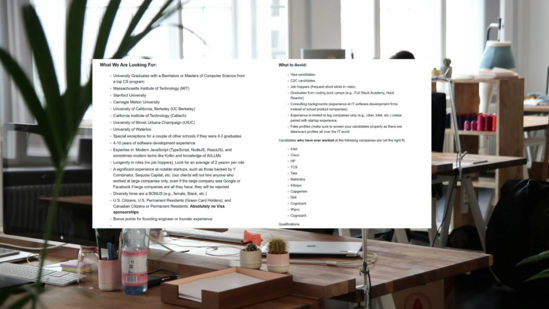The UK government has introduced the first round of stricter visa rules in Parliament, setting the stage for sweeping changes to how foreign skilled workers, including those from India, are recruited across sectors. These changes are set to take effect from July 22, 2025.
Described as a “complete reset” of the immigration system by Home Secretary Yvette Cooper, the measures were presented in the House of Commons on Tuesday as part of the Immigration White Paper released in May.
What’s changing from July 22
1. No more overseas hiring of social care workers
2. New work visa applications must meet a graduate-level qualification
3. Higher salary thresholds based on latest ONS data
4. Over 100 roles removed from the shortage list
5. Critical roles on the temporary list will lose fee and salary discounts
6. No dependants allowed for shortage-list workers
7. Skilled workers already in the UK exempt from new qualification requirement
Care visas to be scrapped, salary bar raised
One of the biggest shifts is the closure of overseas recruitment for care workers. From July 22, new applications for social care roles from abroad will no longer be accepted. However, care workers already in the UK will be allowed to switch visas within the country until July 2028.
There will also be a rise in both the salary and skills thresholds for foreign workers applying under the Skilled Worker route. The new rules mean that most jobs will now require at least a Bachelor’s degree or equivalent qualification.
“Salary requirements for work visas are being raised in line with the latest Office for National Statistics data,” said Seema Malhotra, UK Minister for Migration and Citizenship, in a written statement to the Commons. “A full review of these salary levels will be carried out by the independent Migration Advisory Committee (MAC), including any discounts.”
Shortage list cut down, chefs and plasterers removed
Over 100 roles will be removed from the shortage occupation list, which previously offered relaxed visa conditions. Jobs such as chefs and plasterers are among those being taken off. From now, only a limited number of roles considered “critical” will qualify for temporary access below graduate level.
The government has asked MAC to review this new “temporary shortage list” — including whether these roles should remain on the list beyond 2026.
Workers in these occupations will no longer get fee or salary discounts and will not be able to bring dependants.
Skilled workers in the UK won’t be affected by new rules
Those already in the UK on skilled worker visas won’t be required to meet the new graduate-level qualification threshold.
The government says this approach allows a smoother transition while it tries to shift the system away from low-paid, overseas hiring.
“These new rules mean stronger controls to bring migration down, to restore order to the immigration system and to ensure we focus on investing in skills and training here in the UK,” said Yvette Cooper.
She added, “We are delivering a complete reset of our immigration system to restore proper control and order, after the previous government allowed net migration to quadruple in four years.”
According to the Home Office, this reset is meant to reduce reliance on foreign recruitment for lower-paid roles and encourage upskilling within the UK workforce.
Measures include:
• Raising the skills threshold for Skilled Worker visas, removing 111 eligible occupations
• Closing the social care worker visa route to overseas recruitment in response to widespread abuse and exploitation
• Only allowing time-limited access below degree level through a targeted immigration salary list and temporary shortage list, for critical roles only, with strict requirements for sectors to grow domestic skills
• Commissioning the Migration Advisory Committee (MAC) to conduct a review of the temporary shortage list including occupations, salaries and benefits
Further changes expected later this year include an increase in the immigration skills charge paid by employers and stricter English language rules for visa applicants.




















